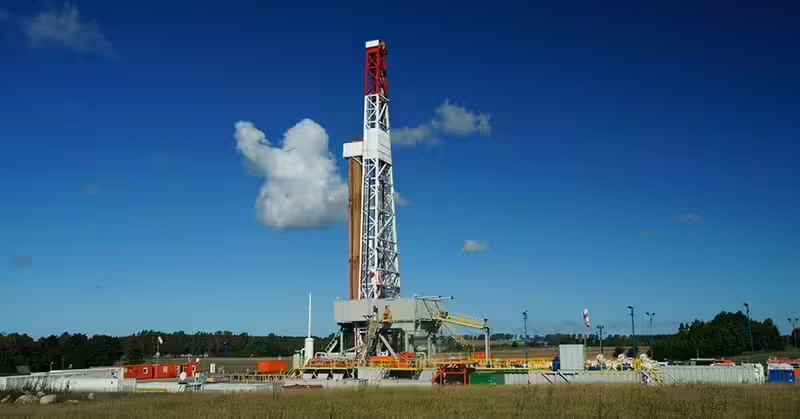5 Dangers of Working in the Permian Basin
September 23, 2019

Between 2008 and 2017, 1,566 workers died while working in oil fields in the U.S.
That’s about as many U.S. troops who died fighting in Afghanistan during the same period.
Working in the oil fields can be a rewarding career choice for many and it’s hard to say no to the large paychecks that come with the work. However, for many, the tradeoff is their health and sometimes even their lives.
Oilfield workers work with heavy equipment that can be complicated to use. Wives and families of Permian Basin workers have to wonder if their loved ones will come home each day.
But what is it that makes this work so dangerous? Could these many injuries and deaths be prevented?
Keep reading to learn more about the hazards of working in the Permian Basin.
The Permian Basin: What You Need to Know
More and more workers are stricken with illness, injury, and even death while doing work in what is called the upstream portion of the U.S. oil and gas industry.
This includes explorations and production. The Permian Basin in West Texas and southeast New Mexico is one of the most lucrative oil sources in the U.S. In fact, more than half of U.S. drilling rigs are located there.
There are more Texans working in the industry than ever before. Most of these new workers have been placed in supporting roles including rotary drill operators, derrick operators, and others that work with deadly machinery and around dangerous gases and chemicals.
Workers are often killed by their own machinery or by exploding gases and develop cancer from exposure to hazardous chemicals.
The upstream portion of the oil industry is exempt from important OSHA regulations that protect workers in other industries because of politics. Oil companies are notorious for under-reporting their injuries to avoid increases in regulations.
When OSHA is involved, they always find violations. The nature of the work naturally leads to accidents even with safety measures in place.
Now that you know a little more about the upstream oil industry, let’s take a look at some of the factors that make working in the Permian Basin so dangerous.
1. Safety Policies Aren’t Being Enforced
As we mentioned above, oil fields are notorious for letting safety go by the wayside.
While there are safety regulations that have been put in place by local and federal law as well, as the oil and gas companies themselves, they aren’t always followed in the field. Oil fields are busy and chaotic environments.
Safety regulations are often either forgotten or intentionally ignored because following them may mean tasks take more time. As you can imagine, safety regulations in an environment like the Permian Basin are extremely important.
When they aren’t enforced in the field, the risk of injury and death increases significantly.
2. Workers Aren’t Properly Trained
Oilfield workers are trained at roughneck and drilling schools. Still, many of them are not fully or properly trained when they go to work in the field.
This is because some companies hire workers knowing that they lack training and experience. Without proper training, workers are more likely to get injured.
Some companies offer on the job training, but this isn’t effective in most cases. As mentioned previously, oil fields are busy. It can be difficult to receive sufficient training while on the job.
The gig is simply too dangerous to go into the field without advanced training. Also, workers often fail to receive continued training.
Not only are workers not trained on important safety measures but they aren’t fully trained on how to operate heavy and dangerous machinery or how to handle deadly chemicals.
3. Insufficient Supervision
Another common issue in the oil fields is that workers aren’t properly supervised.
Oil fields are often understaffed. This means that unsupervised workers who lack proper training and experience aren’t being supervised.
This is especially problematic if an employee’s overstretched supervisor is responsible for their training.
4. Equipment Isn’t Properly Maintained
One of the causes of violations in the oilfield is improperly maintained equipment.
The equipment used in this industry is heavy-duty and dangerous to workers. It’s especially important that this type of equipment be working properly and safely.
Unfortunately, oil field machinery is often overdue for scheduled maintenance. If a problem comes up, workers are told it can wait so that production is not slowed down.
5. Workers Are Exhausted
Work schedules for oil field workers are particularly demanding.
Oil fields operate 24/7 so workers are often expected to perform beyond human capabilities. It’s common for workers to be on for 12-hour day shifts for 7 days in a row and then immediately work 12-hour night shifts for 7 days in a row.
They may also be on call and be expected to come into work regardless if they have just finished working a 12-hour shift. Many workers choose to work these shifts for the money, but the work is not without serious risk.
Exhausted workers are much more likely to be involved in accidents.
Oil Field Injuries
If you or someone you love has been involved in an accident in the Permian Basin oil field, you may be entitled to compensation. Speak with our oilfield injury lawyer for a free, confidential consultation today.
While oil fields are inherently dangerous, most of the injuries that occur could have been prevented.
When oil companies stretch workers beyond their means, ignore safety regulations, and fail to properly maintain equipment, they are being negligent. If an oil company’s negligence causes an injury, you need an experienced oilfield injury attorney on your side.
Contact us today for a free case evaluation.
- Home
- |
- Oilfield Injuries
- |
- 5 Dangers of Working in...















































